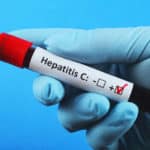Investigational Drug Beats Standard Therapy in Hepatitis C Study
Roche’s Investigational Hepatitis C Polymerase Inhibitor, R1626, Demonstrated Significant End-of-Treatment Response In Phase IIa Study
www.medicalnewstoday.com
Article Date: 27 Apr 2008
Roche’s investigational therapy for chronic hepatitis C virus (HCV) infection, R1626, has shown a significant end-of-treatment response rate when given in combination with PEGASYS(R) (peginterferon alfa-2a) and COPEGUS(R) (ribavirin). R1626 also shows a high barrier to the development of resistance.
After four weeks of treatment with this triple combination, followed by 44 weeks of PEGASYS and COPEGUS, levels of HCV were undetectable in 84 percent of patients infected with genotype 1 virus. This was higher than patients treated with PEGASYS and COPEGUS alone for the entire 48-week treatment period (65 percent). These new data were presented in a late-breaker oral session at the 43rd Annual Meeting of the European Association for the Study of the Liver (EASL), being held in Milan, Italy.
R1626 was discovered and developed at Roche and belongs to a class of antivirals called polymerase inhibitors, which are being investigated with the current standard of care for hepatitis C combination therapy with pegylated interferon and ribavirin.
“These results demonstrate that R1626 holds significant promise to potentially increase the number of hepatitis C patients who can be successfully treated,” said Dr. David Nelson, Director of Hepatology and Liver Transplantation at the University of Florida, Gainesville, Florida. “Since most patients responded very early in treatment with R1626, we expect sustained virological response (SVR) rates that improve significantly on those achieved with the current standard of care. I look forward to SVR data from this Phase IIa study, and to results of the ongoing Phase IIb study.”
Patients in this Phase IIa study will be followed for an additional 24 weeks with no treatment to determine the SVR rate, which indicates successful treatment.
More About the Phase IIa Study and End-of-Treatment Results
The Phase IIa study is a multicenter trial that enrolled 104 patients with genotype 1 HCV, who had not previously received treatment. Its primary endpoint was to evaluate the four-week efficacy and safety of combining R1626 with PEGASYS alone or with PEGASYS plus COPEGUS, in comparison to a current HCV standard of care (SOC), pegylated interferon plus ribavirin.
Patients were randomized into the following treatment groups:
- Group A: R1626 1,500 mg twice a day plus PEGASYS 180 mcg weekly for four weeks
- Group B: R1626 3,000 mg twice a day plus PEGASYS 180 mcg weekly for four weeks
- Group C: R1626 1,500 mg twice a day plus PEGASYS 180 mcg weekly plus COPEGUS 1,000/1,200 mg daily for four weeks
- Group D (standard of care group): PEGASYS 180 mcg weekly plus COPEGUS 1,000/1,200 mg daily for four weeks
Following the four weeks of treatment in this study, all patients received PEGASYS 180 mcg weekly plus COPEGUS 1,000/1,200 mg daily for an additional 44 weeks to complete the 48-week trial.
The study found:
- Data collected at four weeks showed that patients receiving the triple combination (Group C) had a mean decrease in viral load of 5.2 log10 from baseline, indicating a robust and rapid virological response.
- At week 48, HCV was undetectable in 84 percent of patients (26 of 31) who received the triple combination of R1626 1,500 mg BID + PEGASYS + COPEGUS compared with 65 percent of patients (13 of 20) treated with the SOC.
- A higher incidence of grade four neutropenia was reported in the R1626 treatment arms during the four-week treatment period; however, after stopping treatment with R1626, absolute neutrophil counts returned to the level typically seen with patients receiving the SOC alone.
R1626 – A High Barrier to the Development of Resistance
In a separate oral presentation at EASL, it was reported that R1626 continues to present a high barrier to the development of viral resistance. This is a serious concern emerging in the development of small molecule treatments for hepatitis C. Resistance to R1626 has not been yet been identified, after either two weeks of R1626 monotherapy, or after four weeks in patients treated with R1626 in combination therapy.
Rapid Development of R1626 – A Large Phase IIb Study is Now Fully Enrolled
A large Phase IIb study with R1626 was initiated in November 2007 to define the optimal dose of R1626, in combination with PEGASYS and COPEGUS. This Phase IIb trial, called POLI 1, is now fully enrolled with approximately 500 patients, all with genotype 1 hepatitis C.
About Hepatitis C
Hepatitis C is a blood-borne infectious disease of the liver and a leading cause of cirrhosis, liver cancer and the need for liver transplants. According to the Centers for Disease Control and Prevention (CDC), an estimated 4.1 million Americans (1.6 percent) have been infected with hepatitis C; 3.2 million are chronically infected. The number of new infections per year has declined from an average of 240,000 in the 1980s to about 26,000 in 2004. CDC estimates the number of hepatitis C-related deaths could increase to 38,000 annually by the year 2010, surpassing annual HIV/AIDS deaths.
About PEGASYS
PEGASYS, in combination with COPEGUS (ribavirin), are indicated for the treatment of adults with chronic hepatitis C who have compensated liver disease and have not previously been treated with interferon alpha. Efficacy has been demonstrated in patients with compensated liver disease and histological evidence of cirrhosis (Child-Pugh class A) and patients with HIV disease that are clinically stable (e.g., antiretroviral therapy not required or receiving stable antiretroviral therapy). In addition, PEGASYS in combination with COPEGUS is the first and only FDA-approved regimen for the treatment of chronic hepatitis C in patients coinfected with hepatitis C and HIV. PEGASYS is the only pegylated interferon indicated for the treatment of adult patients with chronic hepatitis B (HBeAg positive and HBeAg negative chronic hepatitis B who have compensated liver disease and evidence of viral replication and liver inflammation).
PEGASYS is dosed at 180mcg as a subcutaneous injection taken once a week. COPEGUS is available as a 200mg tablet, and is administered orally two times a day as a split dose. Roche has backed PEGASYS with the most extensive clinical research program ever undertaken in hepatitis C, with major studies initiated to advance treatment for hepatitis C patients with unmet needs, including patients co-infected with HIV and HCV, African Americans, patients with cirrhosis, and patients who have failed to respond to previous therapy.
IMPORTANT SAFETY INFORMATION
PEGASYS, alone or in combination with COPEGUS, is indicated for the treatment of adults with chronic hepatitis C virus infection who have compensated liver disease and have not been previously treated with interferon alpha. Patients in whom efficacy was demonstrated included patients with compensated liver disease and histological evidence of cirrhosis (Child-Pugh class A).
Alpha interferons, including PEGASYS(R) (Peginterferon alfa-2a), may cause or aggravate fatal or life-threatening neuropsychiatric, autoimmune, ischemic, and infectious disorders. Patients should be monitored closely with periodic clinical and laboratory evaluations. Therapy should be withdrawn in patients with persistently severe or worsening signs or symptoms of these conditions. In many, but not all cases, these disorders resolve after stopping PEGASYS therapy (see CONTRAINDICATIONS, WARNINGS, PRECAUTIONS and ADVERSE REACTIONS in complete product information).
Use with Ribavirin. Ribavirin, including COPEGUS(R), may cause birth defects and/or death of the fetus. Extreme care must be taken to avoid pregnancy in female patients and in female partners of male patients. Ribavirin causes hemolytic anemia. The anemia associated with ribavirin therapy may result in a worsening of cardiac disease. Ribavirin is genotoxic and mutagenic and should be considered a potential carcinogen (see CONTRAINDICATIONS, WARNINGS, PRECAUTIONS and ADVERSE REACTIONS in complete product information).
PEGASYS is contraindicated in patients with hypersensitivity to PEGASYS or any of its components, autoimmune hepatitis, and hepatic decompensation (Child-Pugh score greater than 6; class B and C) in cirrhotic CHC monoinfected patients before or during treatment. PEGASYS is also contraindicated in hepatic decompensation with Child-Pugh score greater than or equal to 6 in cirrhotic CHC patients coinfected with HIV before or during treatment. PEGASYS is also contraindicated in neonates and infants because it contains benzyl alcohol. Benzyl alcohol is associated with an increased incidence of neurological and other complications in neonates and infants, which are sometimes fatal. PEGASYS and COPEGUS therapy is additionally contraindicated in patients with a hypersensitivity to COPEGUS or any of its components, in women who are pregnant, men whose female partners are pregnant, and patients with hemoglobinopathies (eg, thalassemia major, sickle-cell anemia).
COPEGUS THERAPY SHOULD NOT BE STARTED UNLESS A REPORT OF A NEGATIVE PREGNANCY TEST HAS BEEN OBTAINED IMMEDIATELY PRIOR TO INITIATION OF THERAPY. Women of childbearing potential and men must use two forms of effective contraception during treatment and during the 6 months after treatment has concluded. Routine monthly pregnancy tests must be performed during this time. If pregnancy should occur during treatment or during 6 months post-therapy, the patient must be advised of the significant teratogenic risk of COPEGUS therapy to the fetus.
Chronic hepatitis C (CHC) patients with cirrhosis may be at risk of hepatic decompensation and death when treated with alpha interferons, including PEGASYS. During treatment, patients’ clinical status and hepatic function should be closely monitored, and PEGASYS treatment should be immediately discontinued if decompensation (Child-Pugh score greater than or equal to 6) is observed. Ischemic and hemorrhagic cerebrovascular events have been observed in patients treated with interferon alfa-based therapies, including PEGASYS. Events occurred in patients with few or no reported risk factors for stroke, including patients less than 45 years of age. Because these are spontaneous reports, estimates of frequency cannot be made and causal relationship between interferon alfa-based therapies and these events is difficult to establish.
The most common adverse events reported for PEGASYS and COPEGUS combination therapy observed in clinical trials were fatigue/asthenia (65%), headache (43%), pyrexia (41%), myalgia (40%), irritability/anxiety/nervousness (33%), insomnia (30%), alopecia (28%), neutropenia (27%), nausea/vomiting (25%), rigors (25%), anorexia (24%), injection site reaction (23%), arthralgia (22%), depression (20%), pruritus (19%) and dermatitis (16%).
Serious adverse events in hepatitis C trials included neuropsychiatric disorders (homicidal ideation, suicidal ideation, suicide attempt, suicide, psychotic disorder and hallucinations), serious and severe bacterial infections (sepsis), bone marrow toxicity (cytopenia and rarely, aplastic anemia), cardiovascular disorders (hypertension, supraventricular arrhythmias and myocardial infarction), hypersensitivity (including anaphylaxis), endocrine disorders (including thyroid disorders and diabetes mellitus), autoimmune disorders (including idiopathic thrombocytopenic purpura, thrombotic thrombocytopenic purpura, psoriasis, lupus, rheumatoid arthritis and interstitial nephritis), pulmonary disorders (dyspnea, pneumonia, bronchiolitis obliterans, interstitial pneumonitis and sarcoidosis), colitis (ulcerative and hemorrhagic/ischemic colitis), pancreatitis, and ophthalmologic disorders (decrease or loss of vision, retinopathy including macular edema and retinal thrombosis/hemorrhages, optic neuritis and papilledema). Adverse reactions reported during post-approval use of PEGASYS therapy, with and without ribavirin, include hearing impairment, hearing loss, serious skin reactions, including erythema multiforme major, and infections (bacterial, viral and fungal).
About Roche
Hoffmann-La Roche Inc. (Roche), based in Nutley, N.J., is the U.S. pharmaceuticals headquarters of the Roche Group, one of the world’s leading research-oriented healthcare groups with core businesses in pharmaceuticals and diagnostics. For more than 100 years in the U.S., Roche has been committed to developing innovative products and services that address prevention, diagnosis and treatment of diseases, thus enhancing people’s health and quality of life. An employer of choice, in 2007 Roche was named Top Company of the Year by Med Ad News, one of the Top 20 Employers (Science) and ranked the No. 1 Company to Sell For (Selling Power). In previous years, Roche has been named as a Top Company for Older Workers (AARP) and one of the Best Companies to Work For in America (Fortune). For additional information about the U.S. pharmaceuticals business, visit our website http://www.rocheusa.com. Product and treatment information for U.S. healthcare professionals is available at http://www.RocheExchange.com.
All trademarks used or mentioned in this release are protected by law.
Roche
http://www.rocheusa.com







